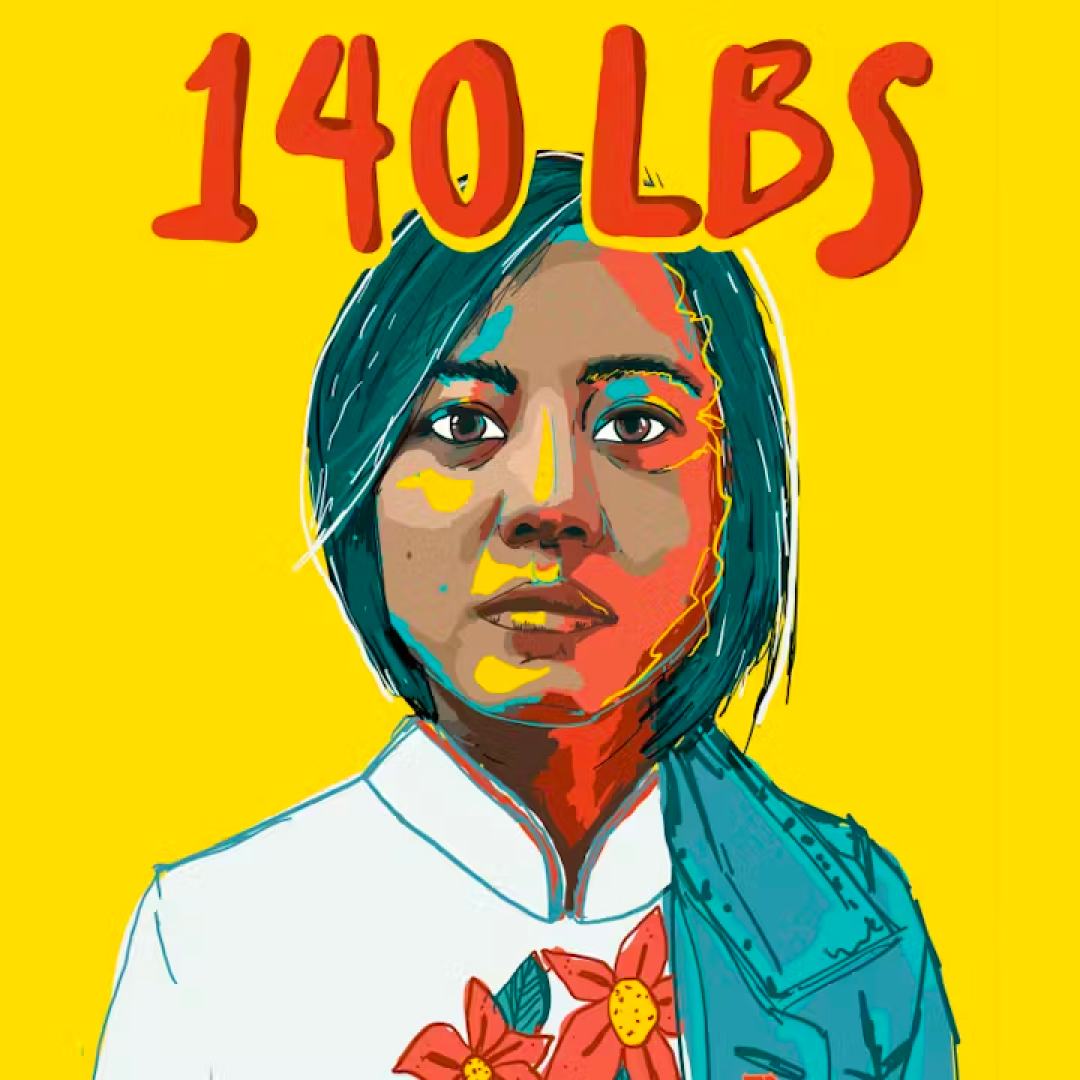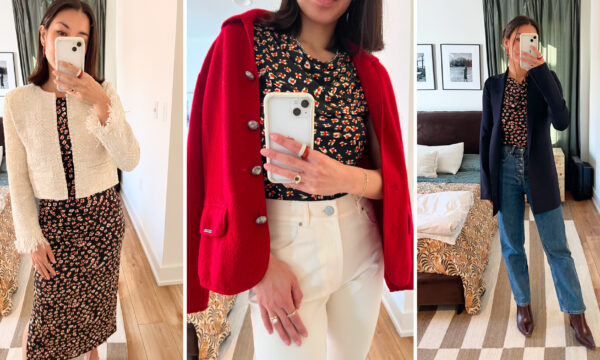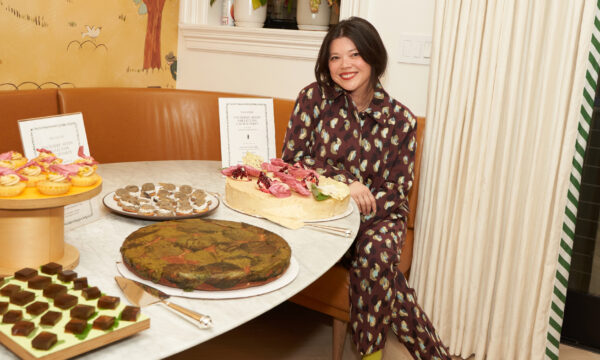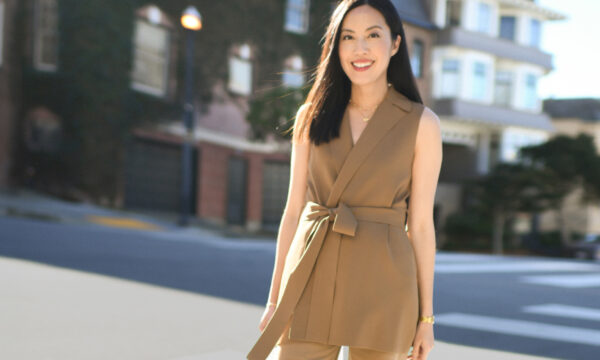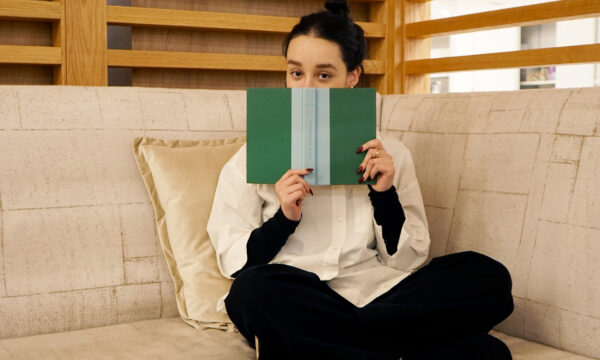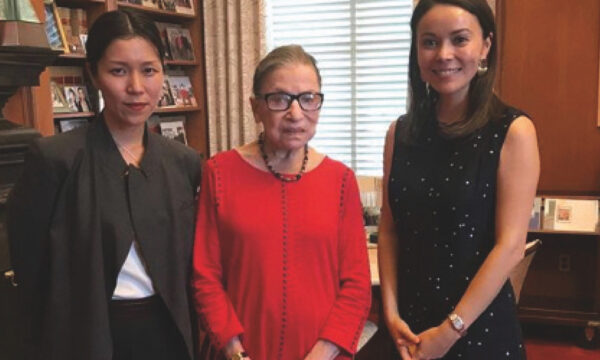
Images courtesy of Susan Lieu.
“I felt a new kind of hunger”: How Susan Lieu Found Purpose Through Performance
An exclusive first look at The Manicurist’s Daughter, a highly anticipated upcoming memoir.
When Susan Lieu was eleven, her favorite person in the world, her mother, went into plastic surgery for a tummy tuck and never returned. In the years that followed, the topic was off limits. Nobody in Susan’s family was willing to talk about what had happened—why her mother wanted plastic surgery in the first place; how a negligent surgeon who preyed on Vietnamese immigrants could continue to operate unchecked; and who her mother really was.
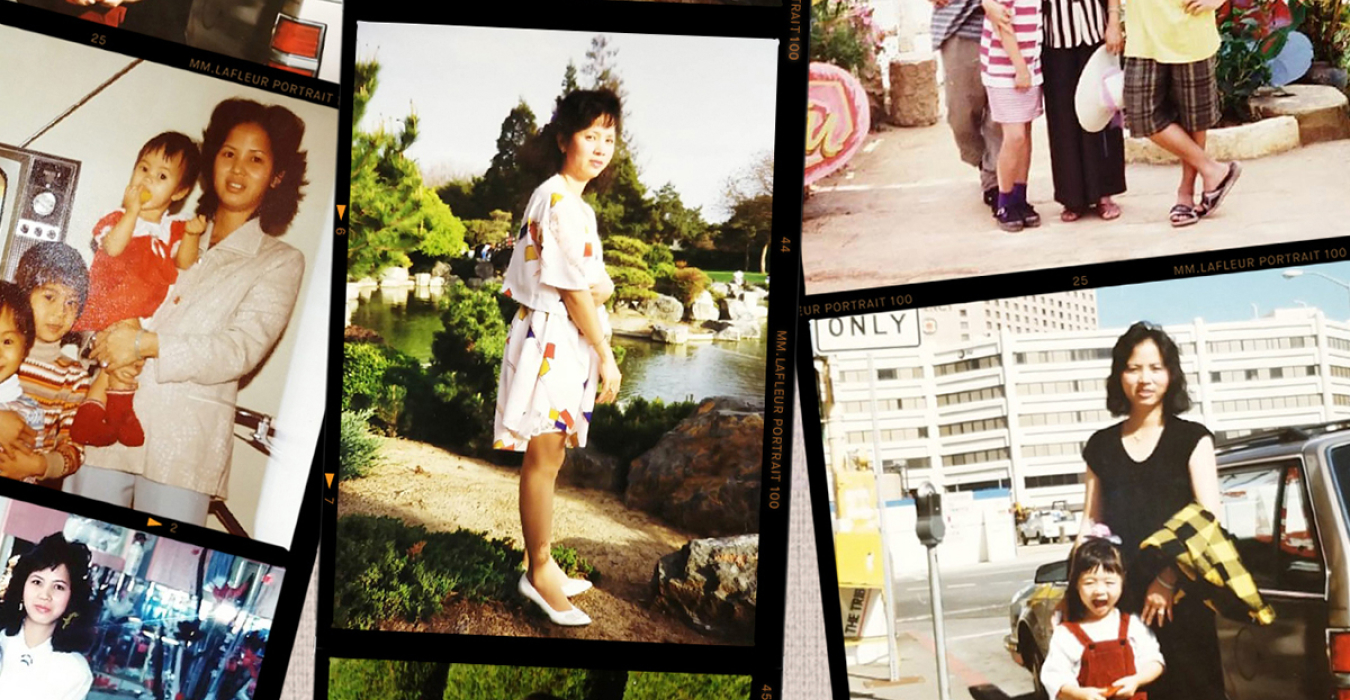
Family photos from Susan Lieu.
In her upcoming memoir, The Manicurist’s Daughter, Susan tells an emotional story of grief, strength, and love with refreshing candor and humor. The exclusive excerpt that follows comes from a chapter entitled “The Calling,” in which Susan describes how she left a corporate job she hated to follow her passion for performance—and discovered something important about herself in the process.
The Calling
Soon after I got married, the urgency to reconnect with my mother subsided because my work life was falling apart. To be fair, I was working a marketing consulting job I didn’t want. On the long commutes to Microsoft, I would listen to NPR and hear about the world’s travesties and feel disgusted with myself. Ever since I was a kid, I thought I would be a humanitarian do-gooder, not measuring click-through rates for a huge technology company. But it was the most I had ever been paid, so now I could finally give Ba a monthly allowance. I was a “good” daughter but a miserable wife. Two months after my wedding, I switched jobs for a hip young food delivery start-up, where I didn’t feel like such a cog. Five months later, I got fired. All my life, I was an overachiever. Now I was unemployed.
My friend Julie tried to console me by encouraging me to explore my hushed desire to become a performer. I had tried stand-up comedy four years prior and was on a roll until I got heckled. I was so terrified of getting attacked again, I avoided the microphone for three years. I kept telling myself it was all a silly pipe dream. After all, I had grad school loans to pay. But as I searched for jobs, I noticed how I always kept a tab open on this auditioning class I heard about. I signed up on a whim.
My participation there got me an audition for a Prius commercial, which I was ecstatic about. But when I walked in, I found the seats filled with dozens of Asian women and white men, which sickened me. I wasn’t special, I was just being typecast as an aspirational Pacific Northwest couple. When my fake husband and I sat down in our pretend Prius, they told us to act like a married couple. I went for it.
“David, why don’t we travel anymore? We always talked about Spain. What happened to us?” I asked with my hands rotating the pretend steering wheel.
“Well, it’s because we’ve been going on road trips in our Prius, which gets great gas mileage.”
“And when are we going to start trying to have kids? All you’ve given me are nonanswers.”
“Come on, let’s take it one day at a time—in our Prius.” I didn’t get the gig, but I had a hell of a time getting into character. I continued my entertainer escapades with headshots so airbrushed, my husband didn’t recognize me. I was an extra in a music video for free and waited around for my talent agent to get me gigs, but she never called. This whole performance thing was going nowhere. Meanwhile, I was getting nonstop calls from Ba and Dì Phương.
“You need to stop jumping from thing to thing! And when are you going to have a baby? When you get too old, it gets harder!” nagged Dì Phương.
“Are you allergic to work? Get a job! Why are you so hardheaded?” accused Ba.
There was no space to talk about my passion or purpose. My elders were just disgusted that I was such an overeducated failure. Then after nine months of interviewing for jobs, I became a consultant (yet again) and my client was Microsoft. It was corporate samsara. I detested it, but it paid well, so I gave myself a reward. I registered for a solo performance class.
I had cut a deal with Marvin. He was ready to start a family. But any mention of motherhood made me feel icky. I couldn’t imagine raising a kid, telling them to “follow their bliss” when I was a complete coward in my own life. Marvin and I agreed to table the decision for two years. He would scratch his mountaineering adventure itch, and I would do the same with performance. Go all out before we had to become responsible parents, hence the acting class.
On the first day of class, I was just as surprised as the instructor when I began my five-minute story. “I wanted to avenge my mother’s death—so I went to look for her killer,” I confessed. I never thought my yearning would ever become public. But here I was, sharing the saddest secret of my life because my family wouldn’t listen. I felt delicate that night but then dismissed the story again for the rest of the semester. I never had any intention of surfacing that ever again. My capstone performance was an Andy Kaufman–esque mime where I fed the audience raisins and then sat there meditating in a rainbow poncho, hovering my hand over a hammer for ten minutes. No one got it, but I thought it was hilarious.
A month after the class was over, I signed up for a twenty-five minute slot for a solo festival happening at a community theater in Greenwood. Whether they booed me off or not, I would have faced my fear and then could finally take out my IUD. I would extend the absurdist piece in front of a real, breathing audience, and then I could be done. That was the plan anyway. But two weeks before showtime, everything I had been so sure of took a turn.
There I was, attending a workshop to refine my show for the festival. The orange-haired instructor, Ashlen, a woman who performed as a clown at kids’ birthday parties, divided us into pairs to discuss our work. I was the odd one out, so she became my partner. We sat in the greenroom, where the walls were plastered with hundreds of messily collaged show flyers and name tags. We sat on a stained, sinking couch as I spread out all my notes on the scuffed coffee table, trying to figure out a splashy ending. But Ashlen kept gently asking me about my mother’s story. I told her about it briefly when she asked how I got into theater. Then she suggested that Má should become the basis for my show. I laughed but dismissed the idea.
“The avenging stuff? Nobody wants to hear about that. It’s not interesting. I could become the next Asian Kaufman. They wouldn’t expect me to tap-dance. Maybe that could be my finale?”
“Her story seems really important to you, and I find that really interesting,” she said softly. I looked up from my colored sticky notes, which mapped out the scenes of the show. This lady was actually serious.
“Who really wants to hear about my dead mom? Plus”—my voice lowered to a whisper—“it’s my family’s dirty laundry. They would be so pissed if they knew I was talking about her.” I kept rearranging my sticky notes but thought about her point. Should I do what’s easy or what’s hard? Nothing was at stake with the performance art. Even if I put on that show, would I have fully confronted my fear, or would I have just checked the box? I let out a big sigh. Who was I kidding? I couldn’t outsmart myself.
“Family is really complicated,” she said. “Your mom sounds like a really big influence in your life.” Ashlen listened so well, I could finally listen to myself.
“It is. She was. She is.”
Ashlen offered me a hug, and then I cried into the workshop facilitator’s chest. Everything I had been holding on to came rushing out in big sobs. I knew the show I created had to be about something that actually mattered to me. Otherwise I would still be a coward. When the tears finally stopped, I felt emboldened to take the high road. I would write a show about Má and memorize it in two weeks. I brainstormed thirty scenes, rearranging all the sticky notes as I talked it out loud with my coach. It was go time.
An hour before my performance, I placed a show program on each of the fifty seats. The cover was a photo of Má in heels standing on a boulder. Inside was the San Francisco Examiner exposé detailing what happened between the plastic surgeon and Má. I wanted everyone to know none of this was made up. Inside the greenroom, my heart was pounding. All the other artists were schmoozing with one another. I kept flipping through my script, repeating the lines over and over again as if cramming ever helped anyone. When my name was called, I pushed through the velvet curtain and took my starting mark. The lights went up, and then I saw eyeball upon eyeball in the dark, their faces expressionless. Go, damn it! I blanked on my line and started to sweat, waiting for them to shun me.
“So . . . ,” I uttered, trying to buy myself time. But then the words came, just like on the first day of solo class. I paced the stage and told them about my last day with Má, the coma, my rage for the plastic surgeon, and the two decades of family silence. I played each of my family members, shifting my body and voice to match theirs. I pleaded, I joked, I fought. Finally, I gave myself permission to shine a spotlight on all the sorrow I held inside. I bared it all so I just wouldn’t feel imprisoned by the shame anymore. I wanted so badly to be free.
When the lights went to blackout, I could feel the beads of sweat on my forehead, the snot dripping off my nose. People started to stand, but instead of getting their stuff to leave, they began to clap and cheer. I was stunned. No one made fun of me like the comedy club heckler years ago. I bowed and rushed backstage, uncontrollably laughing and crying at the same time. I pulled a long roll of toilet paper from the bathroom and wiped my messy face. I could see myself in the mirror, but I also felt outside my body, partly levitating. I was still shaking when I met Marvin in the lobby. I had him hand out copies of the plastic surgeon’s obituary as patrons exited the theater.
“How’d it go?” I said in his ear. He never sugarcoated anything. I could count on him to tell me the truth.
“You cried like ninety percent of the time, babe.”
I laughed and squeezed him tightly, jumping up and down. I’d faced my fear and now I felt alive. I turned to my friends and thanked them for coming out. My tech friend Ben tapped me on the shoulder.
“Susan, wow, that was the most raw theater I’ve seen in a long time, but . . .”
I wasn’t sure if that was a good or bad thing and, boy, was I scared of what was going to come after next.
“But I just kept wondering the whole time—who was your mom? What was she like?” His words hit me like a ton of bricks. The only time Má was in the show, I was sitting by her bedside, talking to her while she lay in a coma. He was right. I had a whole show dedicated to her but didn’t actually share anything about her.
“Yeah.” I choked up. “I wish I knew too.”
After the show, I kept mulling over Ben’s comment. Maybe I would finally be ready to become a mother once I knew my own. All my other attempts to find out about her led me to a dead end, but somehow, this felt different. The adrenaline rush I felt onstage made me realize how much I had numbed my desire to know. I didn’t realize how dead I had been. Now I felt a new kind of hunger, one that wanted to see where this would take me. I wanted to put on another show to answer what she was really like. I just had to find out first.
